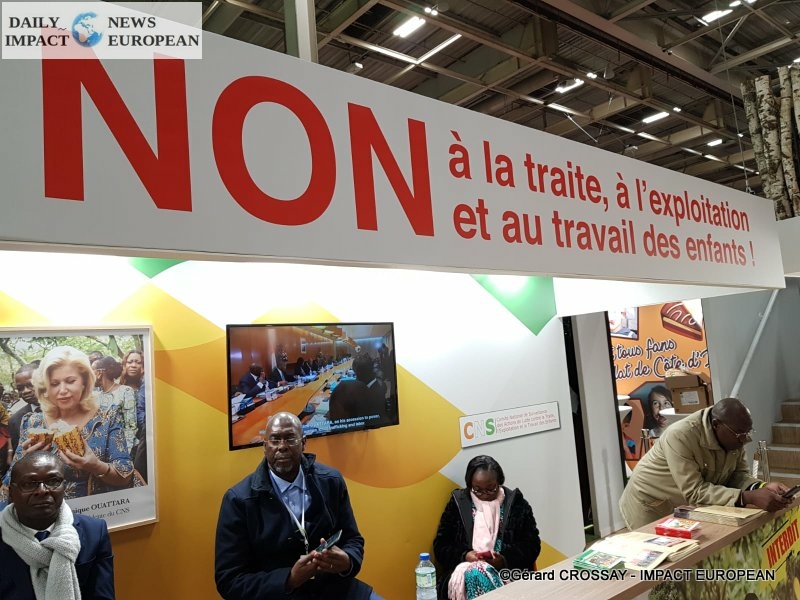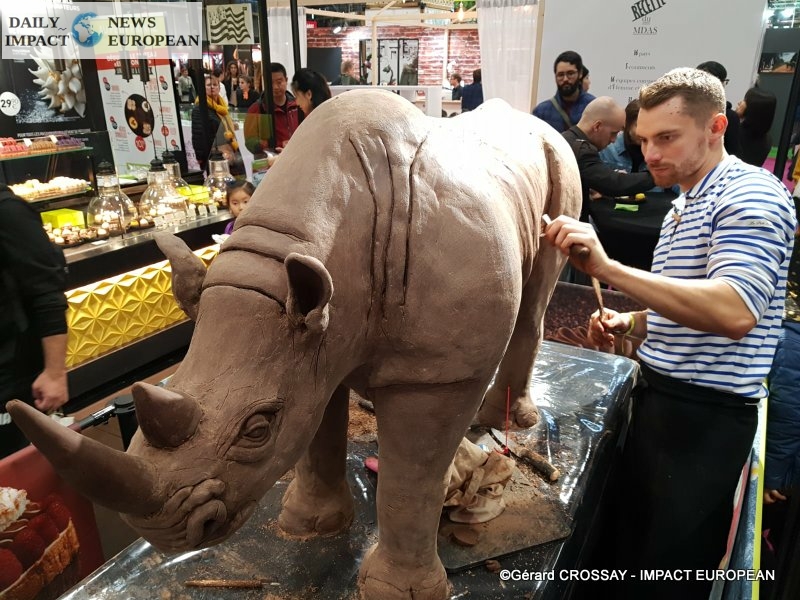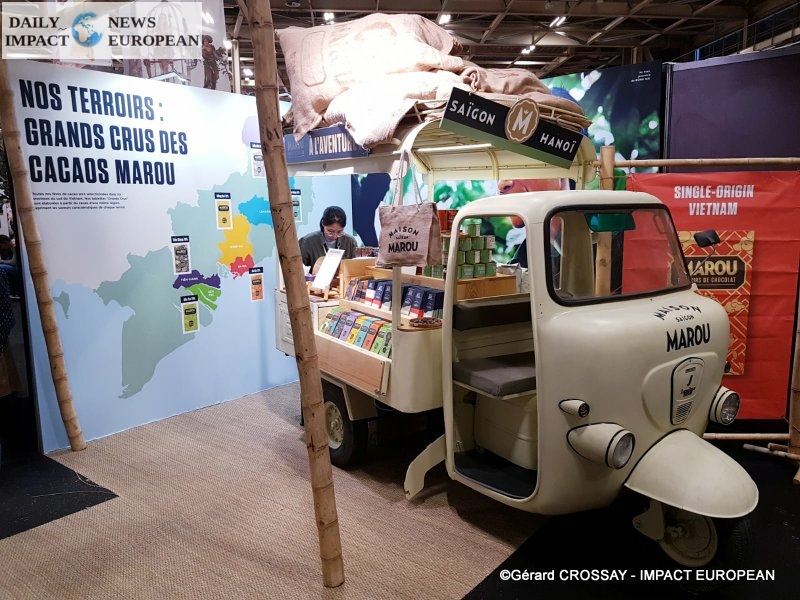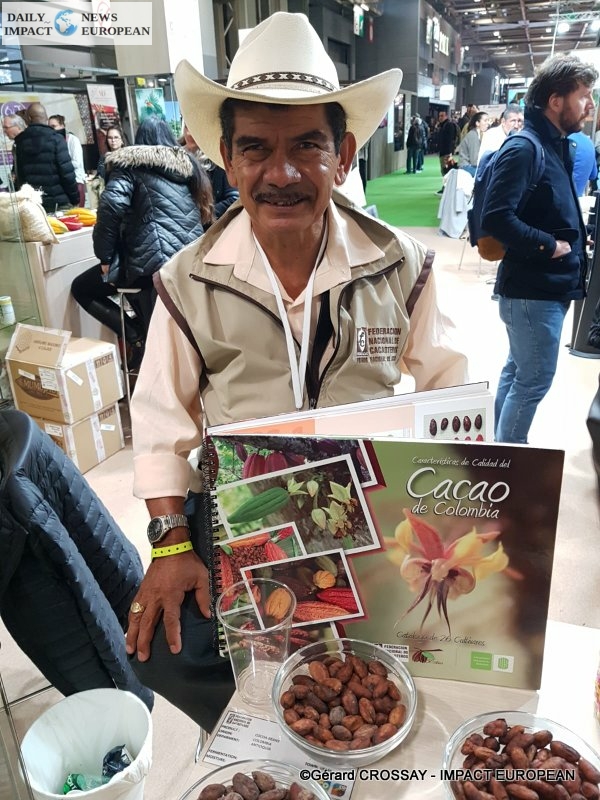Child labor in the cocoa supply chain. Côte d’Ivoire is committed to this scourge.
On the occasion of the 25th edition of the Salon du Chocolat in Paris, Mrs. Dominique Ouattara, First Lady of Ivory Coast and President of the National Committee for Monitoring Action against Trafficking, Exploitation and Child Labor ( CNS), invited the public and the press to a panel discussion on child labor in the cocoa supply chain in Côte d’Ivoire with the theme « Cocoa, responsible culture in Côte d’Ivoire ».
Participants included Amany Konan, Ouattara’s Cabinet Expert, and Jérémie Kouassi, Director of Agricultural Development at the Coffee-Cocoa Council (CCC) and a member of the Technical Committee of the International Cocoa Foundation (ICF).
Côte d’Ivoire is the largest producer with 45% of world cocoa (Ghana 25%, Nigeria and Cameroon, 20%). West Africa is thus the main producer. Far behind, we find South America and Central America, Indonesia, the Philippines, the Dominican Republic, Vietnam …
In 2001, under the pressure of NGOs denouncing the forced labor of children from countries bordering Côte d’Ivoire, the lucrative chocolate industry committed to eliminate child labor in plantations where it provides cocoa .
Faced with the threat of boycotting consumer countries, the sector’s actors signed in September 2001 the Harkin-Engel protocol which required them to implement specific programs to eliminate child labor.
Ten years later, since the objectives were not achieved, Côte d’Ivoire took emergency measures to combat this scourge.
National plans of action have been put in place for the prevention of the phenomenon, the protection of child victims and the suppression of traffickers.
Large public awareness campaigns have been undertaken throughout the country to explain that the place of the child is in school and not in plantations, with threats of conviction. Schools were built (4500 classrooms in cocoa areas), farmers were trained. Posters, TV and radio spots inform parents. Mentalities began to change and the school enrollment rate of children increased significantly, from 59% to 71% over the 2008-2018 period. Since 2015, school is compulsory for children aged 6 to 16 years old.
Child labor continues, however, in hiding.
The priorities are the fight against poverty and the need to enforce the laws.
The construction of health centers to improve the medical care of families, the drilling of boreholes for easier access to drinking water can cope with the precariousness of the population. Women are especially vulnerable. Micro-credits have been set up for them to carry out income-generating activities.
More than 8,000 children were taken from traffickers and reintegrated into their families. Childcare centers in distress have been built.
Specific laws against trafficking and child labor have been adopted. Thanks to them and the creation of specialized units of the Police, more than 220 child traffickers have been arrested and sentenced to prison terms (up to 6 months) by the courts of Côte d’Ivoire.
Border surveillance operations are carried out with the support of Interpol. Labor inspectors carry out regular checks throughout the country, more than 1500 over the period 2015-2017.
At the international level, cooperation agreements have been signed with Ghana, Burkina Faso and Mali to fight against cross-border child trafficking.
According to the French development agency, a farmer earns 1 euro a day, which is three times less than in the 1980s.
The cocoa prices are blazing now!
Of the $ 100 billion in the global chocolate market, only $ 6 billion goes to farmers.
And if the solution to fight the exploitation of children was not simply to increase the price of cocoa?
This is what Côte d’Ivoire and Ghana have just decided. These two countries, the largest producers, have suspended the sale of the crops until 2020/2021 until further notice to prepare the establishment of a minimum price – more than selling cocoa below $ 2,600 per ton. This price has been approved by producers and traders.
A « historic » decision as a way to better pay farmers!
Views: 0















More Stories
Georges Fenech, a Symbol of Renewed Youth, Finds Love Again and Gets Married
United Arab Emirates and Artificial Intelligence: Global Leadership and Strategic Partnerships with France
Premiere of « Gourou » at Pathé